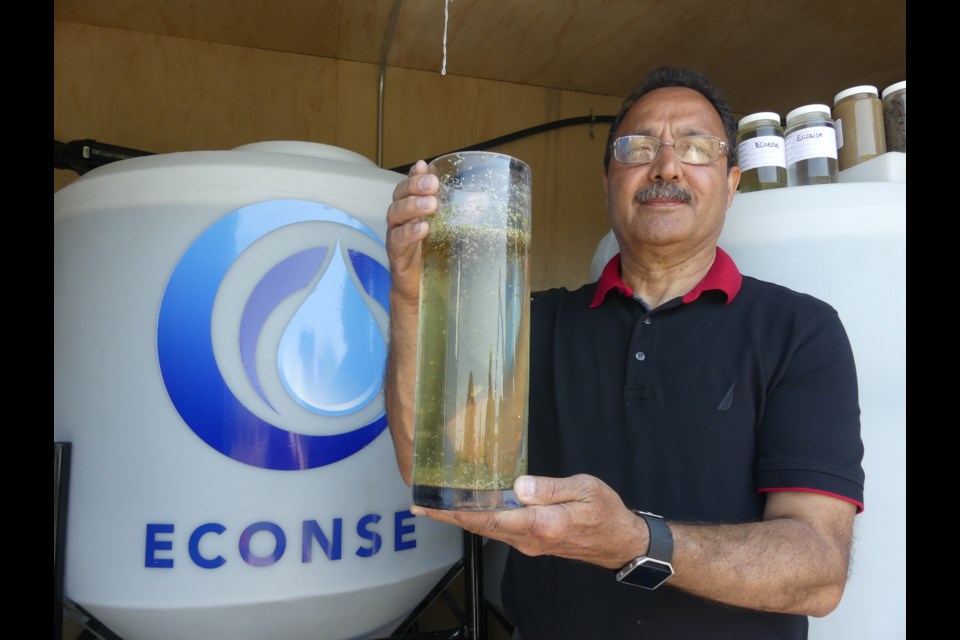With the electrical power of just 10 lightbulbs, thousands of gallons of water could be purified.
That is part of a new technology Econse Water Purification System is designing in a competition against eight other teams from around the world for the $10-million George Barley Water Prize — the research for which is based out of the Holland Marsh.
The teams wrapped up Stage 3 in Bradford West Gwillimbury on Thursday after 90 days of work with the ultimate goal to reduce water’s phosphorus levels that pollute nutrients and create green algae and duckweed.
“Basically, we like to solve difficult problems,” said Neil Sosebee of Toronto-based Econse, which is one of two Canadian companies in the competition. “These are worldwide problems. Our goal is to help communities grow sustainably.”
Before Econse was selected for the competition, it had been working with the Holland Marsh Growers’ Association to help filter the area’s muck soil to help farmers clean out contaminants in an environmentally-sustainable way without the use of chemicals.
It is also working with some Holland Marsh farmers to recycle water they use on crops, and with some Simcoe County breweries to help filter the water they use in the brewing process.
“The farmers are always trying to use the best tools … to help the environment,” said Jody Mott, executive director of the Holland Marsh Growers’ Association, adding the work with Econse has already resulted in a two-per-cent improvement in practices.
“We’ve proven it is viable,” she said. “(Muck) is the hardest nemesis.”
Loren Parra, director of the George Barley Water Prize, which was started by the Everglades Foundation in Florida, said the Holland Marsh was chosen for the competition because the area experiences cold temperatures and warm climates.
The teams — from Canada, the U.S., China and the Netherlands — each worked out of a nine-square-metre space along the bank of the Holland Marsh at the Art Janse Pumping Station.
Each team got access to 2,500 gallons of water a day for the first 30 days, followed by 8,500 gallons of water per day for the next 30 days, and then 2,500 gallons of water a day for the final 30 days, said Parra.
The top four teams will be selected by October, based on four criteria: total phosphorus removed, cost effectiveness, environmental sustainability, and the ability to scale up their projects on a bigger level.
The final Stage 4 will likely kick off at the start of 2020, Parra said.
“The 90 days (were) pretty tough. When we got here it was muddy. Lots of rain. (But) we wanted to see different levels of phosphorous (and we did),” Parra said. “It’s really exciting to say the least. This is a huge global problem.”



